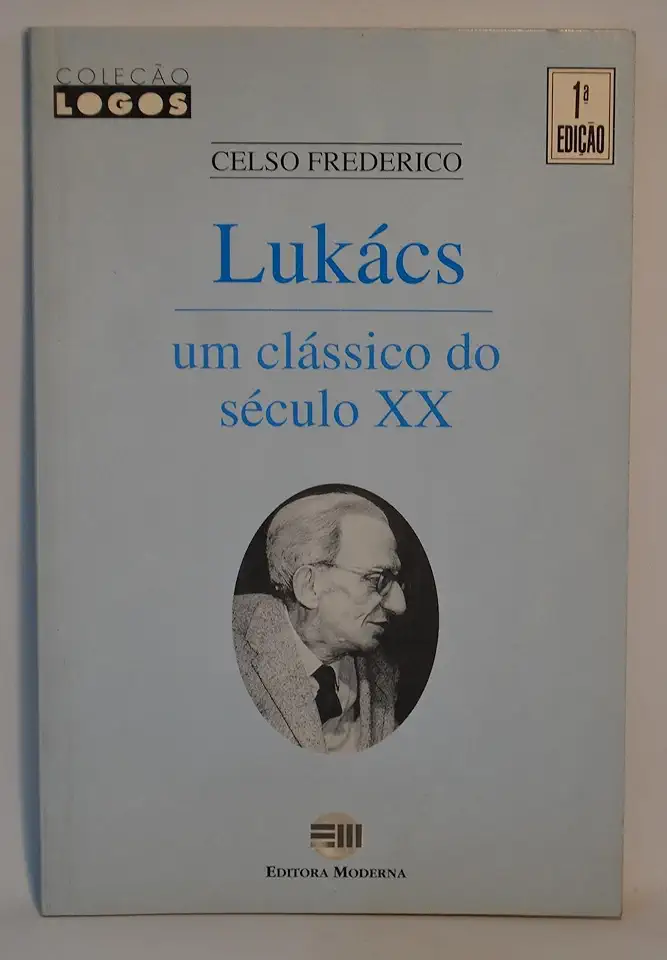
Lukács - A Twentieth Century Classic - Celso Frederico
Lukács - A Twentieth Century Classic: A Comprehensive Exploration of the Life and Work of Georg Lukács
Introduction: Unveiling the Brilliance of Georg Lukács
In the realm of philosophy, few minds have left such an indelible mark as Georg Lukács. His profound contributions to Marxist thought, aesthetics, and literary criticism have shaped intellectual discourse for over a century. Celso Frederico's comprehensive work, "Lukács - A Twentieth Century Classic," offers a captivating journey into the life and work of this intellectual giant. With meticulous research and engaging storytelling, Frederico presents a compelling portrait of Lukács, inviting readers to delve into the depths of his philosophical brilliance.
Lukács' Early Life: A Crucible of Intellectual Formation
Born in Budapest, Hungary, in 1885, Georg Lukács was immersed in a vibrant intellectual milieu from an early age. His upbringing in a well-to-do Jewish family exposed him to a diverse range of ideas and influences, including the works of Marx, Hegel, and Kant. Frederico vividly portrays Lukács' formative years, highlighting the pivotal moments that shaped his intellectual trajectory and laid the foundation for his future contributions to philosophy.
Lukács and Marxism: A Dynamic Engagement
Lukács' engagement with Marxism was a defining feature of his intellectual journey. Frederico meticulously traces the evolution of Lukács' Marxist thought, from his early fascination with the revolutionary potential of the working class to his later critique of Stalinism. Through a comprehensive analysis of Lukács' key works, including "History and Class Consciousness" and "The Ontology of Social Being," Frederico sheds light on the profound impact of Lukács' ideas on Marxist theory and practice.
Lukács and Aesthetics: Reimagining the Role of Art
Lukács' contributions to aesthetics were no less significant. His groundbreaking work, "The Theory of the Novel," revolutionized the understanding of literary form and its relationship to social reality. Frederico delves into Lukács' exploration of the novel as a unique genre, capable of capturing the totality of human experience. By examining Lukács' insights into the works of Balzac, Tolstoy, and Thomas Mann, Frederico reveals the depth and originality of Lukács' aesthetic thought.
Lukács and Literary Criticism: A Dialectical Approach
Lukács' approach to literary criticism was deeply rooted in his Marxist and aesthetic theories. Frederico elucidates Lukács' concept of "dialectical criticism," which emphasized the dynamic interplay between literary form and social context. Through close readings of Lukács' critical essays on Goethe, Shakespeare, and Brecht, Frederico demonstrates how Lukács' method illuminated the social and political dimensions of literary works.
Lukács' Legacy: Enduring Influence and Relevance
Celso Frederico concludes his comprehensive study by assessing Lukács' enduring legacy and relevance in contemporary thought. He highlights the enduring significance of Lukács' ideas in fields such as sociology, political theory, and cultural studies. Frederico argues that Lukács' insights into the relationship between social reality and human consciousness remain essential for understanding the complexities of the modern world.
Conclusion: A Must-Read for Intellectual Explorers
"Lukács - A Twentieth Century Classic" is a monumental work that captures the essence of Georg Lukács' intellectual journey. Celso Frederico's masterful storytelling and rigorous analysis make this book a must-read for anyone seeking to comprehend the profound impact of Lukács' thought on philosophy, aesthetics, and literary criticism. Whether you are a seasoned scholar or a curious explorer of intellectual history, this book promises an enriching and enlightening experience.